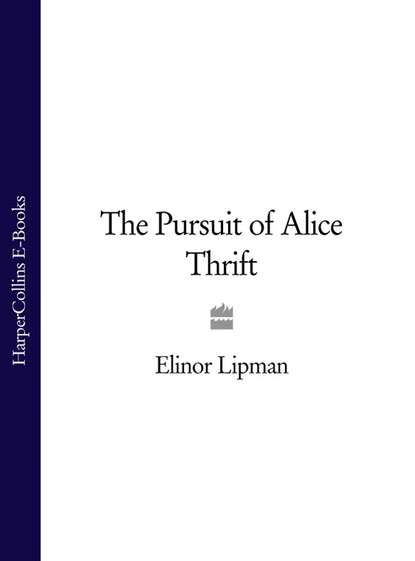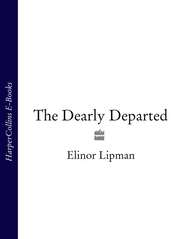По всем вопросам обращайтесь на: info@litportal.ru
(©) 2003-2024.
✖
The Pursuit of Alice Thrift
Автор
Год написания книги
2018
Настройки чтения
Размер шрифта
Высота строк
Поля
“I just can’t see it,” he explained. “Someone as serious as Alice—not just academically but also in the joie de vivre sense—who takes up with a traveling salesman. Your parents didn’t send you to MIT and Harvard so you could practice medicine from a trailer,” said Frederick.
I told my father I had to speak to him in private. He led the way to the pantry and I followed. “You know what he’s basing all of these insults on? Fudge! Isn’t that ironic? Someone makes a living cooking little pastry triangles and decorating platters with dots of liquefied fruit pulp, and that makes him a judge and jury.”
“Can someone earn a living in fudge?” asked my father.
I said I had no idea. None. In fact, we had never discussed the fudge business before this trip.
“I’m not siding with Frederick,” my father said. “What if people judged me on my wife’s product?”
“Don’t be rude, you two,” called my mother from the doorway. “People are leaving. They want to say good-bye.” And to Frederick, “Alice and her father always had this bond …”
“I think we both know she’s the son he never had,” said Frederick.
How could he say that? He must have known that my younger sister, Julie, was too short-haired and pierced for my mother’s taste, and that I was, by default, increasingly her hope for a wedding and grandchildren.
My father and I ventured back.
“I’m coming up to visit you soon,” my mother said.
“Me?”
“In Boston. Do you realize I haven’t taken one day off since Nana went into the hospital? It took me this long to realize that with a mother’s death, the umbilical cord is finally cut. Not that I resented it. I loved that umbilical cord. I used to brag about it: that ours—mine and Nana’s—was made of some space-age material. Indestructible and indomitable. Now I have to form new alliances and visit some museums.”
I said, “You have Julie, too. She’s a good candidate for a new alliance. I think she’s got an easier schedule than I, so it might be more satisfying for you.”
“Julie,” said my mother, “thinks that I don’t like her friends.”
“You don’t,” said my father.
“All I know,” said my mother, “is that Julie had boyfriends all through high school, that she was even a little boy crazy, and now I’m supposed to forget that and embrace her … so-called lovers.”
“It could be a phase,” said my father.
“It’s biochemical,” said Frederick. “It’s not a choice.”
“Please,” said my mother. “It’s all about sisterhood and politics.”
The kitchen door swung open to reveal the politely inquisitive face of Ray. “Someone must have taken the wrong coat,” he said. “There’s one left on the coatrack and it doesn’t belong to …” He looked toward the foyer, then pronounced, “Mrs. Gordon.”
“Gorman. I’ll handle this,” said Frederick.
We waited. The dispossessed Mrs. Gorman raised her voice and cried, “In January? I’ll catch pneumonia with nothing more than a coat thrown over my shoulders.”
“Why me?” moaned my mother. “What kind of idiot goes home in the wrong coat?”
“Frederick’s taking care of it,” said my father.
“Maybe we’ll leave now,” I said.
“Unless we can help with the coat mix-up,” said Ray.
“You’d be doing us a favor if you took some food back to Boston,” said my father.
“No problem,” said Ray.
Frederick came back through the swinging door and went straight to the phone. He punched some numbers, tapped his foot, fixed his eyes on the ceiling, and whispered to us, “She knew exactly what the problem was: two black Max Maras, same fur trim, different sizes.”
“Polly’s?” asked my mother.
“Polly’s,” Frederick confirmed.
My mother said, “Let them work it out on their own turf.” She opened the door and said, “Marietta? Polly’s not home yet. Can you just swing by her house tomorrow and swap the coats? I’m exhausted.”
“Hers is enormous,” said Marietta.
“Maybe a size ten,” Frederick whispered. “More likely a twelve.”
“Can’t you just roll up the sleeves?” asked my mother. “Or borrow something for the ride home?”
“I can’t believe she could even get into mine,” Marietta whined.
I left the kitchen and said to Marietta—the bridge partner famous for wearing a size zero and having quadruple-A feet—“I know it wasn’t your fault, but you might consider name tags or a laundry marker.”
Marietta burst into tears, prompting my mother to do the same.
“You two aren’t crying over the coats, are you?” I asked.
My father joined us and demanded to know what I’d said to my mother to provoke this outburst.
I said, “She’s crying because Marietta’s crying.”
“Take your mother upstairs,” he said. “I’ll drive Marietta home.”
“You didn’t bring your car?” I asked her.
My father said, enunciating carefully, “Alice? I don’t think you understand that Marietta lost her own mother last fall, and sometimes when someone’s crying about a lost coat, it’s not about a lost coat at all.”
How was I supposed to know that Marietta’s mother had died? All I’d ever heard about Marietta was that her life was an endless, frustrating search for clothes and shoes that didn’t fall off her body. I said, “I’m very sorry for your loss. I hope it wasn’t painful or prolonged.”
Marietta sank a little, so my father propped her up by her bony shoulders.
He shook his head and mouthed a string of indistinct words that turned out to be amyotrophic lateral sclerosis.
“Which was hell for her and hell for me,” Marietta shouted. “So I haven’t had much time to sew name tags in my clothes.”
“Alice didn’t know,” said my father.
Ray joined us by the coatrack. “Hey!” he said. “I could hear you from the back porch! What are you yelling at Alice for?”






